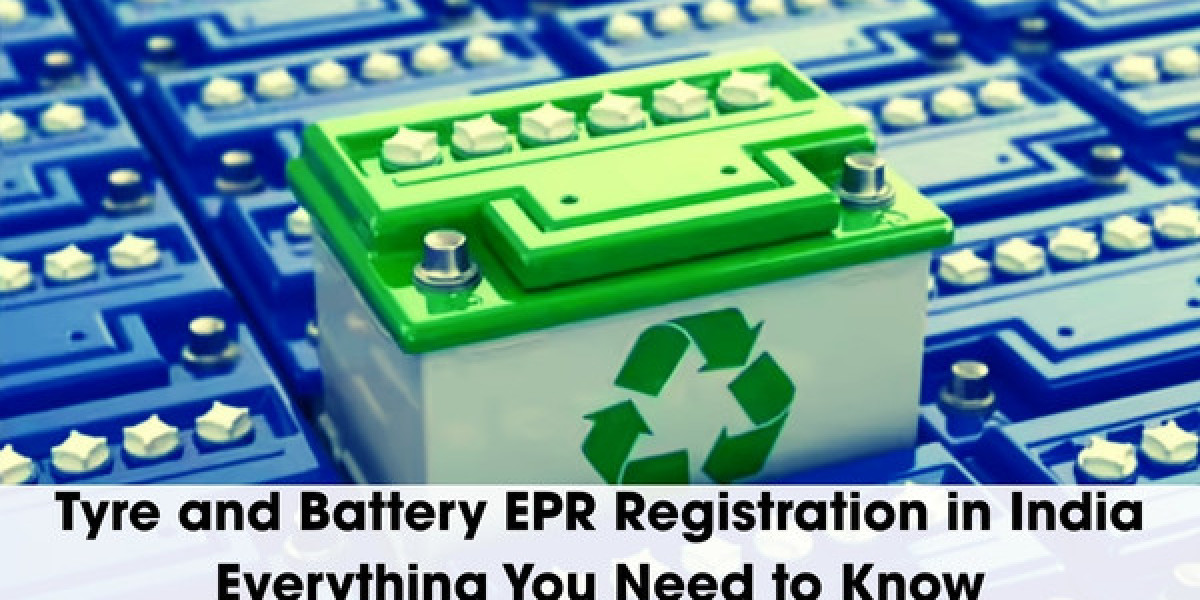With sustainability and waste management becoming core responsibilities for manufacturers and importers, India has tightened its environmental regulations through Extended Producer Responsibility (EPR). Today, not just electronic goods, but also tyres and batteries are included under the EPR compliance mandate.
If your business is involved in the manufacturing, import, or distribution of batteries or tyres, you must understand the process of Tyre EPR Registration in India and Battery EPR Registration India to stay compliant with government norms and avoid penalties.
In this article, we’ll explain what these registrations are, who needs them, and how Ewour Waste Management can help.
What is EPR Registration?
Extended Producer Responsibility (EPR) is a government-led framework that makes producers legally responsible for the collection, recycling, and disposal of products once their use is complete.
Originally introduced for e-waste under the E-Waste Management Rules 2016, EPR has now been extended to plastic waste, battery waste, and waste tyres through dedicated rules.
Battery EPR Registration India: Overview
The Battery Waste Management Rules, 2022, notified by the Ministry of Environment, Forest and Climate Change (MoEFCC), came into effect to regulate the lifecycle of all types of batteries including lead-acid, lithium-ion, nickel-cadmium, and others.
Who Needs Battery EPR Registration in India?
Battery Manufacturers
Battery Importers
Assemblers or Repackers
Online Sellers or Marketplaces of Batteries
Electric Vehicle (EV) Battery Suppliers
If your business is involved in any stage of a battery’s lifecycle in India, you must obtain Battery EPR Registration India from the Central Pollution Control Board (CPCB).
Key Requirements:
Registration on the Battery Waste Management Portal
Annual recycling targets based on the number/weight of batteries sold
Tie-up with authorized recyclers or refurbishers
Submission of quarterly and annual returns
Awareness campaigns for safe disposal
Tyre EPR Registration in India: Overview
The Hazardous and Other Wastes (Management and Transboundary Movement) Rules, 2016, along with CPCB guidelines, make it mandatory for companies dealing with waste tyres to register and take responsibility for their environmentally sound disposal.
Who Needs Tyre EPR Registration in India?
Tyre Manufacturers
Importers of new or used tyres
Auto manufacturers supplying tyres as part of vehicles
Distributors and e-commerce sellers of tyres
If you fall into any of these categories, you must apply for Tyre EPR Registration in India under CPCB’s waste tyre management compliance framework.
Key Responsibilities:
Meet annual tyre waste collection & recycling targets
Use verified tyre recyclers (Pyrolysis or authorized processors)
Maintain accurate transaction records
Submit regular compliance reports
What Happens If You Don’t Register?
Failure to comply with EPR norms for battery or tyre waste can result in:
CPCB fines and penalties
Revocation of licenses or registrations
Rejection of government or private tenders
Loss of business reputation
Legal action under the Environmental Protection Act
EPR Registration Process – How It Works
Whether you're applying for Tyre EPR Registration in India or Battery EPR Registration India, the general steps are similar:
Step 1: Prepare Business Documents
You’ll need:
Company PAN, GST, CIN
Product details (type, weight, model, usage)
Details of authorized signatory
Past production/import data
Step 2: Register on the CPCB Portal
Apply online via the CPCB’s official EPR registration portal for either batteries or tyres.
Step 3: Submit EPR Plan
Mention how you plan to collect, recycle, or refurbish post-consumer waste. Tie-ups with authorized recyclers are a must.
Step 4: CPCB Review & Approval
The CPCB may seek clarifications or raise queries before granting your EPR Authorization.
Step 5: Receive EPR Certificate
Once verified, you’ll get your EPR Registration Certificate, which is valid for a fixed period (usually 5 years).
How Ewour Waste Management Helps
Navigating government portals, legal language, and environmental compliance can be overwhelming. That’s where Ewour Waste Management steps in. We provide end-to-end support for:
Battery EPR Registration India
Tyre EPR Registration in India
Compliance documentation & plan drafting
Recycler agreements and tie-ups
Timely submission of annual returns
Renewal and ongoing compliance tracking
With our help, your business can avoid delays, rejections, or penalties and focus on operations while we manage your EPR responsibilities.
Why EPR for Batteries and Tyres Matters
Used batteries contain hazardous chemicals like lead, cadmium, and lithium all harmful to the environment if not treated properly. Similarly, waste tyres are non-biodegradable, flammable, and take up significant landfill space.
Proper EPR enforcement ensures:
Safer recycling processes
Reduction in illegal dumping
Conservation of raw materials through recovery
A cleaner, greener India for future generations
Conclusion
Whether you’re dealing with lithium batteries or rubber tyres, environmental accountability is no longer optional it’s a regulatory necessity. Securing your Battery EPR Registration India and Tyre EPR Registration in India is the first step toward responsible business operations.
With Ewour Waste Management by your side, you don’t have to worry about legal hassles or paperwork we’ll take care of it all.
Need help with EPR Registration?
Call us at: +91 9582827375 | 18008890452
Email: info@ewour.com
Visit: www.ewour.com














